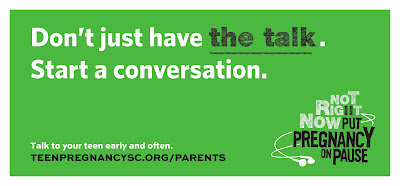A few Sundays ago, the pastor of Brookland Baptist Church
gave a sermon on love, pertaining to parents and children. The scriptural reading came from 1
Corinthians 13:4-13: “When I was a child, I spoke as a child, I understood as a
child, I thought as a child. When I became a man, I put away childish things.” He gave the sermon from the insight as a
child talking to adults.
Pastor Jackson’s first point of emphasis was: I hope my parents and adults would remember
when I had something to say I would SPEAK it as a child. This means children imitate what is heard
from other adults. I have grown to
realize many people do not believe that children listen to what they are saying,
because they almost never listen whenever they are given advice. Children often
see and hear more than what we think they do.
For instance, a story was told during the sermon about a little boy in
Sunday School who was called upon to pray.
He started off his prayer with Dear Mr. Damn. After he finished praying, the teacher asked
why he referred to God as “Mr. D.” The
child answered saying, “Well, isn’t that God’s second name?” He was speaking what he had heard from other
adults. Those adults are his role models,
and I’ve heard many adults say, “Do as I say, not as I do,” but that doesn’t
guarantee that a child won’t imitate you.

Pastor Jackson’s second point was: I hope my parents and other adults would remember
I UNDERSTAND as a child. I put thoughts into action based on my understanding
from my role models. Basically, what I
see in my parents and others is how I will act because what they are doing is
how I understand things to work. If
parents and other role models portray strong work ethic, then children will
understand what it means to work. If
there is an emphasis on education around children, then they will understand
how important education is. On the other
hand, if a child only sees one parent or adult working in their household and
the other sits at home watching TV and eating all day, then they will
understand that this is the way a household should be.
Finally, Pastor Jackon’s last point was this: I hope my parents would remember that my
childish thoughts about love are how my parents display love toward each
other. Pastor Jackson pointed out three
kinds of love: IF love, BECAUSE love and
ANYHOW love. IF love is explained as
conditional love that depends on behavior; the love is earned. An example given was: “if you make all As and Bs in school, I’ll be
proud of you as my child.” All children
understand IF love because they are always bargained with IF love to gain
certain results. Children recognize IF love
that is dependent upon works, not grace.
IF love can be great to mold children into how they should act, but it
should not be the only love displayed.
Children view BECAUSE love as being more protective of the
parent and not considerate of the child.
It is based upon appearance, because a parent holds a certain position, i.e.
a president of a company, may expect certain things from their child and they
have to conduct themselves in a certain manner.
This means not bringing shame upon the parents and upholding the
family’s name. This could be a great
kind of love also because it brings children a sense of responsibility and duty
into their lives. However, many times
BECAUSE love is what keeps families together, because the family does not want
to break their image. They may stay together for the children no matter what,
even if they are no longer in love.
Thirdly, ANYHOW love is recognized and
thought about by children for their parents.
Children need ANYHOW love because of the many challenges they may be facing
in their lives. Children will make
mistakes, just like adults did and still do.
ANYHOW love is patient and kind, not jealous or arrogant, does not
insist on its own way, not irritable or resentful, does not rejoice in wrong
but rejoices in the right, and bares, believes, and hope of all things. Children may disappoint their parents at
times but parents should love them anyhow.
I can only hope that I am being a great role model to the
children that are looking up to me and displaying actions of love for them to
imitate. Once I become a parent, I also
hope that I will be able to display actions that are worthy of my children’s
hearing and seeing. One way to ensure
this is to open the lines of communication between children and parents and/or
trusted adults. Knowing the things your
children are doing, and how they are doing those things, will always show what
the child is being taught through other people’s actions at home. This
goes back to an earlier example of the child calling God Mr. D. A parent
would have known that their child calls God Mr. D if they are keeping an open
line of communication and could help to correct that behavior. It’s
always said that “learning starts at home.”
For resources and information on how to talk to your child, visit our Parent Portal.















